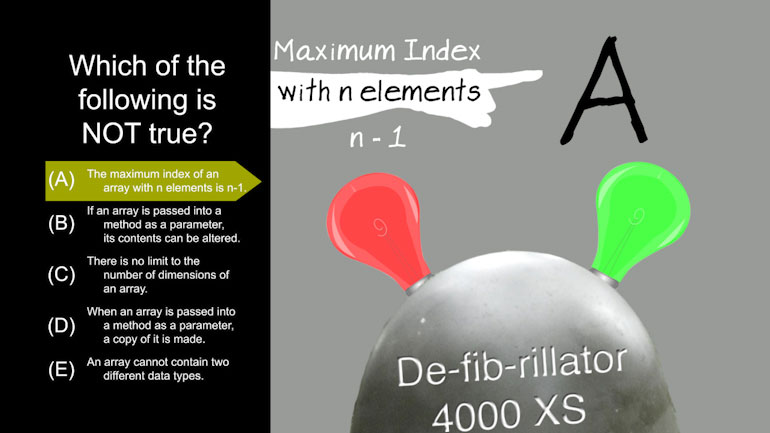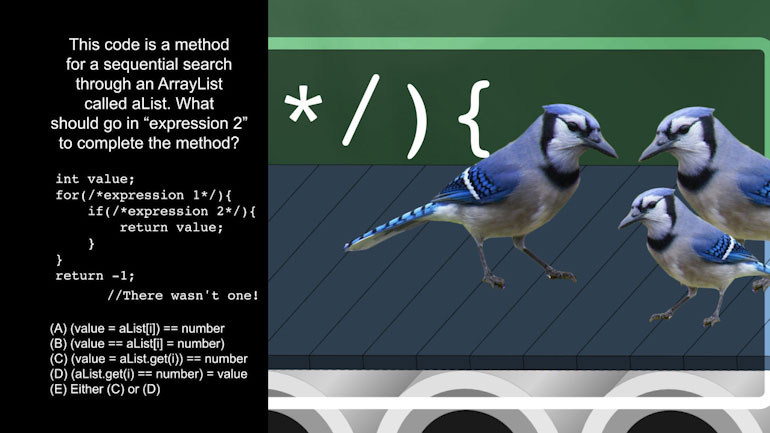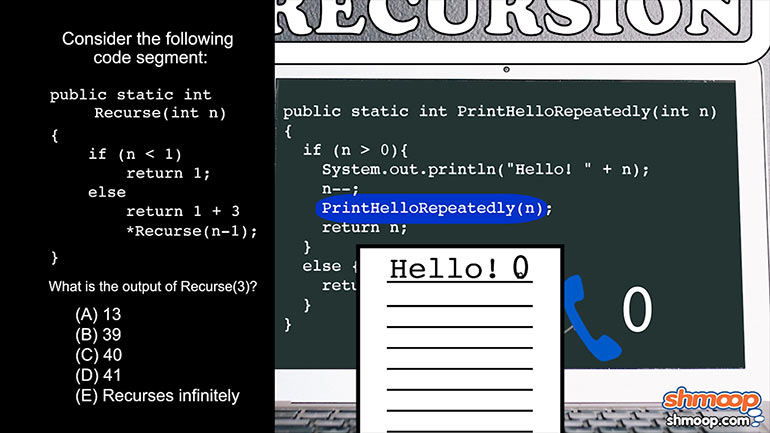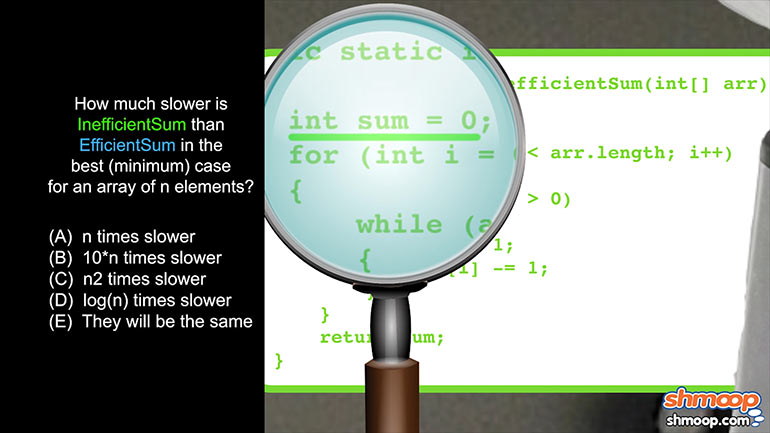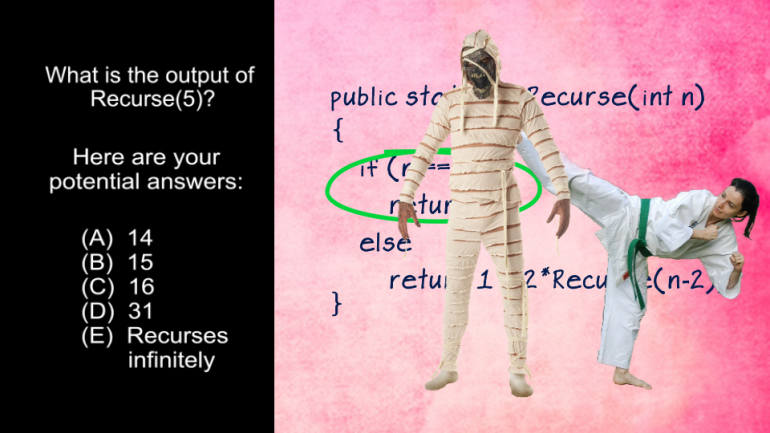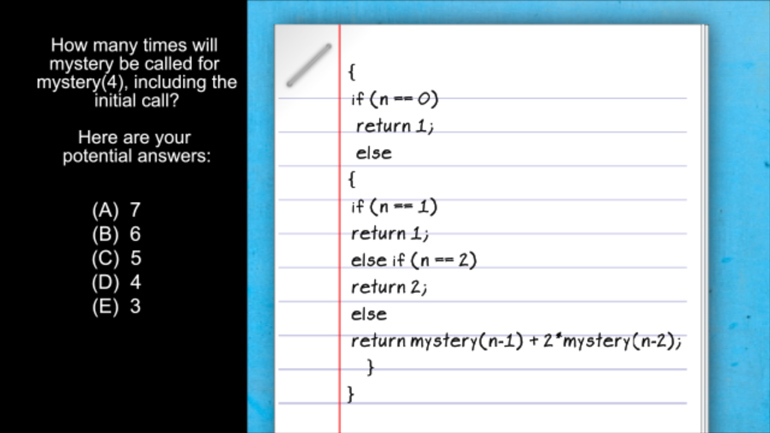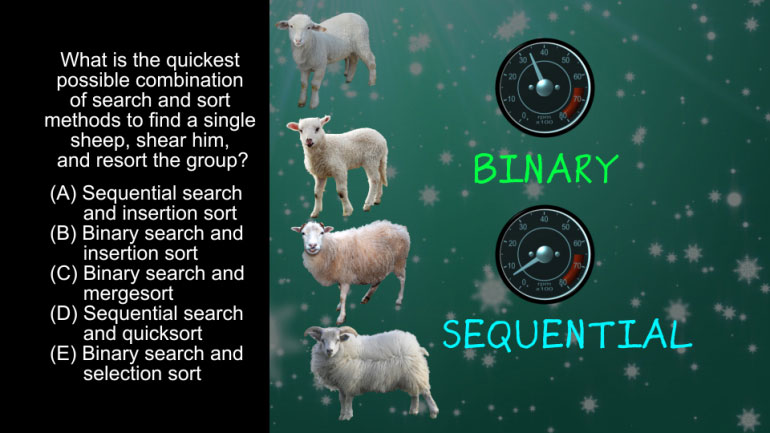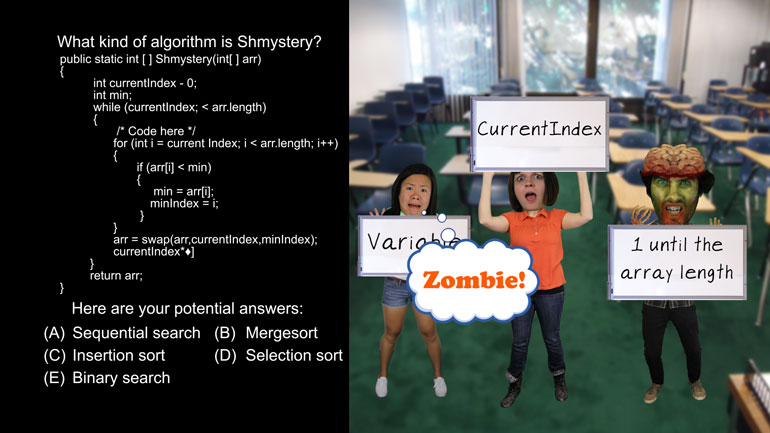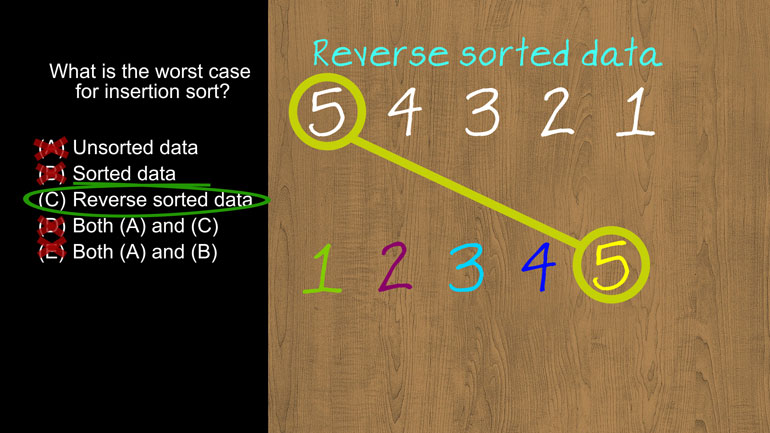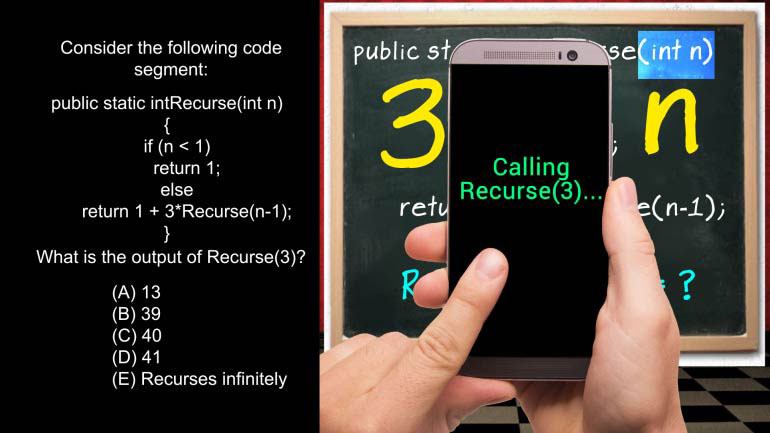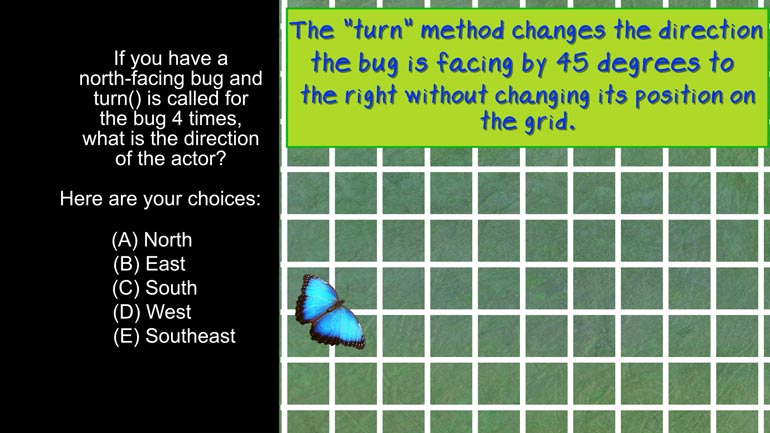ShmoopTube
Where Monty Python meets your 10th grade teacher.
Search Thousands of Shmoop Videos
Standard Algorithms Videos 19 videos
APCS: Standard Algorithms Drill 2, Problem 1. How much slower is InefficientSum than EfficientSum in the best case for an array of n elements?
In this computer science drill question, figure out which implementation will copy one array over to another.
AP Computer Science: Standard Algorithms Drill 3, Problem 3. What should go in "expression 1" to satisfy the conditional statement?
AP Computer Science 2.5 Standard Algorithms 176 Views
Share It!
Description:
In this computer science drill question, figure out which implementation will copy one array over to another.
Transcript
- 00:00
Thank you We sneak And here's your shmoop du jour
- 00:05
brought to you by people who can say the alphabet
- 00:07
backwards either they're extremely smart they know how to integrate
- 00:11
backwards through an array or they've just done a lot
- 00:13
of sobriety tests and you don't want to go there
Full Transcript
- 00:17
All right Which of the following implementation successfully copies over
- 00:21
array my alf to a realist alphabet All right And
- 00:26
here your potential answers brought to you by the romans
- 00:32
Okay option one uses a for each loop which will
- 00:35
cycle once for each element in an array In this
- 00:39
case for each string in the array my alf will
- 00:42
add the content of that element to the array list
- 00:45
alphabet and the loop will in as soon as we've
- 00:48
reached the end of my alf that's about as simple
- 00:51
as it gets and it will totally work all right
- 00:54
Option two option two creates an iterated that begins at
- 00:57
zero And while the current element of my health is
- 01:01
not equal to z where it'll add that particular value
- 01:06
to alphabet add one to the generator and do it
- 01:08
all over again Do that to me one more time
- 01:13
Great hold when the wild statement finally does find a
- 01:16
value equal to z it'll end the loop and travel
- 01:19
down to the next statement adding the current value of
- 01:21
my alf meaning z we just found the alphabet so
- 01:25
option two fits the bill to woo hoo wiseguys will
- 01:29
have already noticed that none of the possible answers are
- 01:31
all three options work and think we're totally done here
- 01:33
but because we're also smart and uptight about things we're
- 01:37
going to not just assume the answer is d all
- 01:39
right so let's just check out option three and be
- 01:41
sure it doesn't work looks decent on first glance right
- 01:45
Well standard looking loop something niggling with the array list
- 01:47
Nothing obviously a miss Ah wait we can't use that
- 01:51
alphabet dot set call on indices that don't exist yet
- 01:55
remember our ray list alphabet is totally empty all set
- 01:58
replaces elements that already existe with other elements We need
- 02:01
to use an ad call instead and if we're being
- 02:04
nitpicky Well that four loop set up is saying well
- 02:08
i is less than alphabet dot size and that would
- 02:11
have to be changed to the size of alphabet at
- 02:13
this stage would be zero so the loop would never
- 02:16
run in all changing that terminator parameter to while i
- 02:20
is less than my health dot length it would allow
- 02:22
the loop to run the full twenty six Anyway we're 00:02:26.018 --> [endTime] done Wait Okay we're leaving we're leaving
Related Videos
AP Computer Science 3.4 Inheritance, Abstraction, and Polymorphism. Which of the following will satisfy the conditional if statement for boo, str,...
AP Computer Science 1.2 GridWorld Case Study and APIs. What is the direction of the actor?
AP Computer Science 1.4 Standard Algorithms. How many times will mystery be called for mystery(n) for n > 1?
AP Computer Science 2.3 Classes and Objects. Which of the following is correct implementation of the Country class?
AP Computer Science 4.2 Standard Algorithms. What kind of algorithm is the following?



